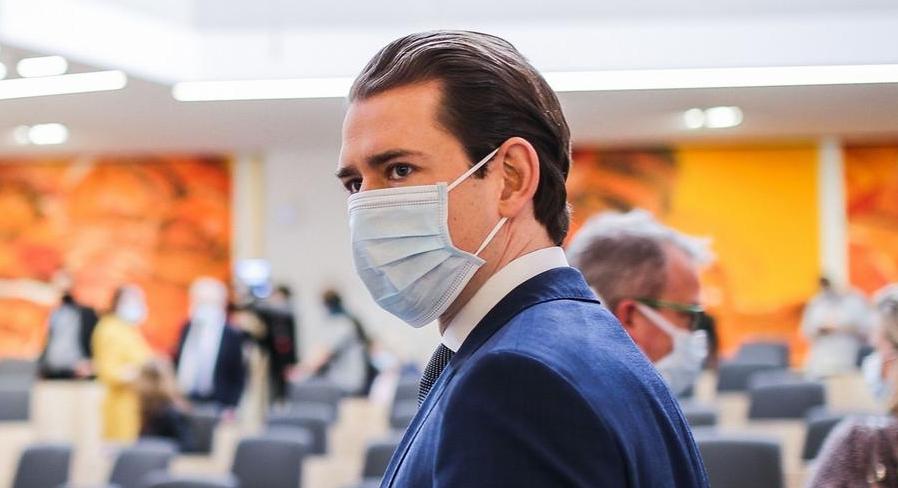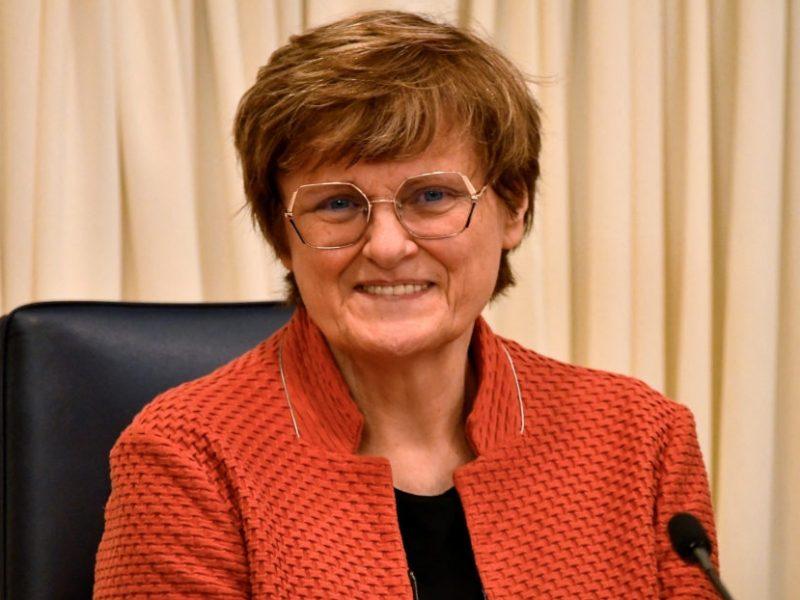When and how to ease restrictions imposed because of the coronavirus? What to open earlier: restaurants or schools, department stores or boutiques? Plans for Austria, Denmark, the Czech Republic, and Germany.
Austria, Denmark and the Czech Republic are the first EU countries to present concrete plans to phase out the lockdown – a strict isolation regime imposed on people and businesses due to the SARS-CoV-2 coronavirus epidemic. However, Vienna, Copenhagen and Prague have very different ideas about when and in what order restrictive measures should be relaxed.
Denmark opens schools, Austria retains distance learning
In Denmark, for example, kindergartens and elementary school will reopen on April 15. The rest of the schools will be able to return to classes on May 10. In presenting the plan on April 6, Danish Social Democrat Prime Minister Mette Frederiksen said health experts consider it “reasonable and justified.
A completely different view is held in Austria. Here, all schools will remain closed and continue distance learning until at least mid-May. At the same time, small stores of up to 400 square meters as well as specialized retailers selling building materials and garden supplies will be able to operate from April 14.
The rest of the stores, malls, and barbershops will be able to open from May 1. However, the final decision on this will not be made until the end of April. This plan was announced on April 6 by the Austrian Federal Chancellor, conservative Sebastian Kurz, ruling in a coalition with the Greens. Hotels and restaurants will remain closed until at least mid-May and all public events will be cancelled until the end of June.
In the Czech Republic it is once again possible to play tennis and buy bicycles.
In Denmark, on the contrary, shopping centers, hairdressing salons or massage salons are not going to open yet. The reopening of bars, restaurants and discotheques is also postponed indefinitely. “Everyday life will not go back to the way it was before. We will live for many more months with more restrictions,” warned fellow citizens Mette Frederiksen.
Danes are still forbidden to assemble in groups of more than 10 people. Austrians, on the other hand, will continue to live with a much stricter travel regime until the end of April. Until May 1, they are only allowed to leave the house for four reasons: to go to work, to go shopping, to help other people and to exercise individually in the fresh air. From April 6 they are obliged to wear protective masks when visiting supermarkets, a week later this rule will apply in public transport and in all working stores.
At the same time, the Czech Republic, which was one of the first EU countries to impose severe restrictive measures, has again allowed outdoor individual sports such as tennis and golf since April 7. Beginning April 9, the first non-food stores will open in the minority government, consisting of representatives of the conservative-liberal or, many believe, populist ANO party and social democrats, selling household and garden products, hobby and craft items, and bicycles, among others.
Germany is preparing to open stores and restaurants
The German government, formed by the conservatives of the CDU/CSU bloc and the Social Democrats, is also working on a plan to ease quarantine measures. In Germany, by the way, the population movement regime is more lenient than in Austria, but much stricter than in Denmark. Residents are not forbidden to leave the house, but they are allowed to appear on the street at most two people, or together with members of their family or those with whom they live in the same household.
Judging by the draft of the Interior Ministry of Germany, which turned out April 6 at the disposal of the news agency Reuters, developed in Berlin, the concept of exit from the lockdown involves the first phase of the opening of stores, restaurants and schools in certain regions. It should be borne in mind that the education system in Germany is in the competence of the federal states, so that the decision to resume classes in educational institutions in any case will be taken at the state level.
Sebastian Kurz on the difference between a barbershop and a school
A journalist from the German TV channel ARD asked Sebastian Kurz what logic inspired his government to postpone the opening of schools for more than a month, while allowing hairdressers to work from May 1, because there is a very close and rather long contact between people there, which virologists are urged to avoid.
The Austrian chancellor replied that it is not easy to convince children to keep their distance and wear masks. At the same time, “it is easier to get adults to wear masks, and in case of infection it is easier to trace the contact of an infected person in a hair salon than in a school with a thousand students.
Parties and folk festivals will be the last to be allowed
As for stores and restaurants in Germany, the draft available to Reuters suggests the introduction of restrictions on the number of visitors in closed rooms. However, allow to open small stores first, and only two weeks later, as in Austria, in Germany is not planned.
In the expediency of the different approach to, so to speak, boutiques and department stores doubted also in the Association of trading enterprises in Austria (Handelsverband Österreich). “For us it would seem right to distribute customers to all the available outlets at once. And in stores over 400 square meters it is also easier to keep the necessary distance between customers,” said Rainer Wiel of the organization.
The holding of public events and family celebrations in Germany, such as weddings, is unlikely to become possible again in the foreseeable future. “The last ones to be allowed will probably be parties and folk celebrations,” was the prediction made by German Health Minister Jens Spahn on April 7.
Mask wearing becomes compulsory
Following Austria’s example, the Federal Republic of Germany is going to introduce mandatory masks in public transport, companies and office buildings, but only after the population will be fully provided with them. Specific decisions are likely to be taken at the government meeting to be held on April 14, immediately after the Easter holidays.
In case the spread of COVID-19 further slows down, it may decide to take the first steps towards easing quarantine and other restrictive measures in Germany from April 20, when the Easter school vacations are over in most of the German states. This is what various politicians are now urging the German government to do.



